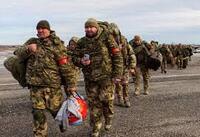Arnon Grunberg's Blog, page 23
February 26, 2025
Tough-love
 Upholstery
UpholsteryOn achievability – Julieanne Smolinski in The Guardian (thanks to my friend P):
‘On any given day, I range from “grouchy dad in a movie set in the 1950s” to “PMDD Jerry Seinfeld”. You know: “When did they start putting these dumb adhesive bands on bananas? They come naturally bunched!”, et cetera. And for whatever reason, I’m at my worst in the car. When I’m overwrought, I don’t scream at my kids or pick fights with my husband – that all gets saved for the car, when I’m by myself, with no one else to hear me but God and my upholstery.’
(…)
‘ (I’d recently made the switch from a tough-love therapist to the kind who just sides with you on everything for an extra $150.) Her suggestions were based on actual anger management guidance for people even more irritable than I am, people who have been brought up on charges for real-deal rage incidents. One strategy is – seriously – saying the words “beep beep” instead of using your horn. Another is trying to express your feelings without involving or engaging the other person (for example, yelling “I am upset that you didn’t use your turn signal, because I am late for work!” to yourself, instead of at someone who might get out of their car and slap you).’
(…)
‘A tense moment later, the muscly guy emerged holding an absolutely enormous bullhorn.
Well, now we could all relax. Then the real fun started.
“ATTENTION JERKOFFS! MOVE YOUR FUCKIN’ TRUCK! I’M TALKING TO YOU, PIN DICKS! MOVE YOUR DUMB ASS BEFORE I PUT MY FOOT UP YOUR ASSHOLES!”I don’t know whether he was an off-duty fireman, a parade organizer, a hostage negotiator or what. Maybe he had a bullhorn just so he could yell at people in traffic. It didn’t matter. He said “assholes” like it was two separate words, and he said it loud. This went on for some time; in a true feat of poetry, or improvisation, he never repeated the same florid insult twice.’(…)
‘I wish I was a person with great reserves of fortitude and patience, who stabilizes and comforts other people in times when we’re all frightened, inconvenienced and furious. We need those people, the peaceful ones who wait for things to pass and know that they will. I wish I was, but I’m afraid I’m not.’
(…)
‘Trying to not be angry was impossible – it’s what you do with the feeling that matters. This applies equally to sitting in traffic, getting cut in line for an oil change, or watching the world you wanted for your kids fall irrevocably apart, day after day after day.
That rage, she said, is not unique to me or to the particular time and place in which we’re living. We have jobs to do, people to raise – and the worst thing you could do is let the worst feeling become the guiding principle of your short time here. You could certainly honk, or make the choice to start carrying a bullhorn in your car. Or you could realize that new challenges require new coping strategies that don’t involve the daily venting of our rage in front of our children. While admittedly fun, it’s just not a sustainable way to live if you don’t want to end up in a trembling fetal position under your duvet every night, or, perhaps, in a glassy-eyed mugshot on the evening news. Then she said something unintentionally devastating about my new haircut.’
Read the article here.
A few conclusions. The last word about anger management has not been said yet.
Most experts on grief believe that anger is just the prelude to sadness, why not skip the prelude?
Produce some dazzling or less dazzling models in clay, a sculpture once told me that working with clay helped him dealing with his anger.
The same can be said of course about writing.
But maybe the eternal youth is the eternal anger?
February 24, 2025
Opinion
 Lifelong
LifelongOn astonishing words – The Economist:
‘“It is clear that the Americans, at least this part of the Americans, this administration”, Mr Merz said, “are largely indifferent to the fate of Europe.” He went on to declare it his “absolute priority” to help Europe achieve “independence from the usa”. These are astonishing words from an incoming German chancellor, the leader of the Christian Democrats (cdu) and a lifelong Atlanticist. Unfortunately, Mr Merz is right: Europe does indeed have to contemplate being able to defend itself without America fighting by its side. His problem is that saying it is easier than doing something about it.’
(…)
‘But the alternative would be worse. Seeking to mobilise public opinion by being critical of Mr Trump, Mr Merz risks driving America out of nato even faster—or at least advertising the alliance’s faultlines to Russia. If he does not find a way to raise funds and devise a multi-year strategy for Europe to take up its own defence, he will leave Germany even more vulnerable. Most new leaders are not tested before they enter office. But Donald Trump and Vladimir Putin wait for no one.’
Read the article here.
Yes, Mr. Trump and Mr. Putin would like to Europe raw, as steak tartare.
Mr. Trump and Mr. Musk might not even be interested in Europa as a museujm unless they can turn it into the Trump and Musk museum.
Is NATO going to survive, is the EU going to survive?
Is in twenty years from now, or less, war between France and Germany again conceivable?
I know the Europeans; they might as well conclude that would like to eat each other before they will be eaten by an empire.
Gains
 Endorsement
EndorsementOn the boon – NYT:
‘The AfD received public support from Mr. Vance and an endorsement by the billionaire Trump adviser Elon Musk. It sought to make political gains out of a series of deadly attacks by migrants in recent months, including in the final days of the campaign.
But that boon never materialized.’
Read the article here.
Never underestimate anti-Americanism among the far-right in Europe.
February 23, 2025
Places
 Militia
MilitiaOn dancing with dictators - Thomas Meaney in LRB in 2019:
“The Sahara is one of the few places on earth no one has been foolish enough to try to conquer. There have, however, been attempts, over the centuries, to govern it. In Ghat, one of the last Libyan towns in the Fezzan before the desert takes over, there are vestiges of efforts to bring the land to order: Bedouin trails that date from the Middle Ages; a rough-hewn fortress, started by the Ottomans and finished by Italian Fascists, that overlooks the hollowed-out ruins of a medina below. The traders, militiamen, shop owners and tour operators here have a range of views about Europe’s rekindled interest in their region. For some, it is the promise of a better livelihood: to get their share of the vast amount of money the EU is now pouring into North Africa, or at least to recoup the losses that followed Nato’s destruction of Gaddafi’s distribution networks. (When Gaddafi’s son was released from prison two years ago, the citizens of Ghat celebrated in the streets with gunfire.) For others, new electronic fences, biometric scanning stations, military outposts and an increasing number of European soldiers are signs that delicate circuits of kinship and commerce are being disrupted. At a makeshift café in a petrol station on the outskirts of Ghat I met a Tuareg man associated with a local militia. ‘They get tired, they want to leave,’ he said of the European forces, as if their arrival was a nuisance rather than a paradigm shift.”
(…)
“For Brussels, Sisi’s waxing authoritarianism appears a small price to pay for his perfect record in policing migration in a country with rampant unemployment, especially among the young. As the Dutch president, Mark Rutte, put it in Cairo, ‘sometimes you have to dance with whoever’s on the dance floor.’”
(…)
“As the political scientist Max Gallien has shown, just because an economy is informal doesn’t mean it’s unregulated. For more than thirty years, the borders of Saharan states have been controlled zones of carefully choreographed illicit trade.”
(…)
“But Europe itself seems to have settled on a narrow strip of common ground. Ursula von der Leyden, the incoming EU commissioner, has proposed renaming the job of top migration officer in Europe ‘Vice President for Protecting Our Way of Life’. Jean-Claude Juncker, her predecessor, agrees: ‘We want a Europe that protects ... a Europe that defends.
Read the article here.
Not much has changed since 2019.
Migration has only become more f the issue that will drive (some) people to the polls.
And dancing with dictators is more and more considered an honorable thing, the dictator can get things done. At least that’s what some people believe.
The informal but regulated economies still exist, they thrive.
February 21, 2025
Support
 Arguments
ArgumentsOn Lenin – The Economist:
‘What has changed since the time of Watergate? Not the law. Then as now, the Supreme Court recognised that the president had “unrestricted power” to remove top officials, and that the executive branch had “exclusive authority and absolute discretion” to decide what cases to prosecute. What has changed, profoundly, is America’s political culture.
At least two of the prosecutors who resigned were, like Richardson, Republicans with admirable records of public service. Danielle Sassoon, the acting us attorney for the Southern District of New York, was first to make a dignified, principled exit, after dismantling Mr Bove’s arguments and writing she could not “in good faith defend” his position. A member of the Federalist Society, Ms Sassoon had clerked for conservative luminaries, including Justice Antonin Scalia. Next to resign was another prosecutor on the case, Hagan Scotten, a former clerk for Chief Justice John Roberts and a Special Forces veteran who was awarded two Bronze stars. While noting he was no critic of the Trump administration, Mr Scotten wrote to Mr Bove, “No system of ordered liberty can allow the Government to use the carrot of dismissing charges, or the stick of threatening to bring them again, to induce an elected official to support its policy objectives.”’
(…)
‘Mr Vought appears to regard this as necessary because of a “Marxist takeover” of the government. It is a curious inversion, or projection: Vladimir Lenin rejected the idea of an apolitical civil service, and the Bolsheviks built a one-party state that prized loyalty over merit and individual scruples. Over the long haul, this approach is not likely to work out for America, either.’
Read the article here.
In the long run Trump won’t be a Lenin.
Loyalty first, merit or scruples last.
Well, the Soviet-Union lasted a few decades. And not long after that we got Yeltsin and then Putin.
We will see how long the present king and all his subordinates will last. More than four years I’m afraid, but sometimes history has pleasant surprises for you in the making.
Dealing
 Realities
RealitiesOn physics – Friedman/Healy in NYT:
‘I’ve kind of given up on politics when dealing with Trump because at least until the midterms, there are no levers to pull. The Senate is all in on him. The House is all in on him. The Supreme Court is all in on him. His media ecosystem’s all in on him. I’m now entirely betting on physics, on the hard realities of things. You cannot move 2.2 million Palestinians from Gaza physically. And you are not going to get Ukraine to just surrender to Russia because you bat your eyes at them.
There is the hard physics of things, and one of the physics is that our auto industry cannot survive in a world where the steel components it needs get tariffed by 25 percent and you basically crush the EV incentives. The physics of that, the math is not going to add up, and all you have to do is look at the Ford stock price to see it.’
Read the complete conversation here.
Give up on politics, pin your hopes on physics.
We’ll see where the talk ends and the walk begins.
But the talk can do quite a lot of damage in the meantime.
February 19, 2025
Under 18
 Malaise
MalaiseOn Russians tanks and a peace that resembles suicide – The Economist:
‘Perhaps a third of the 4.3m Ukrainians who fled to Europe are under 18; many of them will never return. A deal without long-term security will push more parents to send their children abroad, exacerbating Ukraine’s already pronounced demographic malaise. “Peace is needed,” says a senior Ukrainian official. “We need peace. The question is—a peace that doesn’t finish us off at the same time.”’
(…)
‘“Mr Trump appears to want to get rid of Mr Zelensky, whom he has never liked and who he thinks is difficult,” says a former diplomat. “This is not about elections, it’s about getting rid of Zelensky.”’
(…)
‘As one senior American official says: “If Zelensky can mobilise 18- and 20-year-old men, it might be worth fighting. If he can’t, he should take the best deal he can.”With Europe cut out of Mr Trump’s dealmaking, much now rides on Mr Zelensky and his will to fight. He has good reason to push back against harsh demands: his job and his place in history depend on it. But standing up to an American leader who thrives on using enemies to define himself will be dangerous, and psychologically tough. Insiders worry Mr Zelensky is retreating into an ever narrower circle—right at a time he needs the broadest support. “There is no one who is ready to say no to him,” complains one, “and he is making mistakes.” Many Ukrainians are clearly frustrated with their war leader too. Internal polling revealed to The Economist shows that while Mr Zelensky remains Ukraine’s most popular current politician, he would lose a future election by 30% to 65% to Valery Zaluzhny, his former top general, who has yet to enter politics. In January, a public poll showed trust in Mr Zelensky had fallen to 52%, the lowest of the war, well below the 90% who trusted him at the invasion’s start—although well above the 4% suggested by Mr Trump on February 18th.’
(…)
‘“Remember there are millions of weapons in the country. You can even buy a captured Russian tank on the frontlines for 100,000 hryvnia [$2,400].”’
Read the article here.
A Russian tank in Ukraine is less expensive than a month rent in Manhattan.
I would be interested in buying one, turning the tank into a mobil home.
February 18, 2025
Crucial
 Peacekeeping
PeacekeepingEmma Ashford in Foreign Affairs:
‘As the negotiation phase of the Ukraine war begins in the coming days, it is important to understand that security guarantees are not the only way to prevent Russian recidivism. Instead, policymakers should consider alternatives to direct security guarantees: how to boost Ukraine’s own deterrent capabilities while addressing the conflict’s underlying causes. Ultimately, such steps are likely to be more credible and more effective than a half-baked European peacekeeping force overly reliant on the United States for crucial support in areas such as surveillance and military logistics.’
(…)
‘With NATO off the table, and the United States refusing to send troops, discussion in European policy circles has focused on ways to provide a security guarantee for Ukraine that replicates but does not require NATO membership. Some agreements are already in place: states including France, Poland, and the United Kingdom have signed bilateral security cooperation agreements with Ukraine, mostly related to weapons or training. Commitments to provide troops, however, have been less forthcoming. Private discussions on troop deployments to enforce a line of demarcation are ongoing. British Prime Minister Keir Starmer has said that his country could send troops, but French President Emmanuel Macron—the only European leader to previously pledge such deployments—has become equivocal on this question, backing off his original commitment. Poland, perhaps the most vocal supporter of Ukraine, has flatly denied plans to send troops to Ukraine.’
(…)
‘Another problem for Washington is that these European efforts do not necessarily keep the United States out of future conflict. For one thing, most experts writing about the potential deployment of European troops in Ukraine usually include a caveat: the backing of U.S. enablers (in the form of assistance on command and control, aerial refueling, and intelligence, surveillance, and reconnaissance) would be necessary to make the deployment possible. This need reflects the reality that European states are not fully capable of mounting an operation of this size without U.S. support, meaning that U.S. troops would have to be present, at least in small numbers, to support European deployments.’
(…)
‘A rebuilt and adequately supplied Ukrainian military would be a formidable deterrent to Moscow, and Western support will be critical to this military rebuilding. Rather than paper promises of NATO membership—or insufficient European troop deployments—what Ukraine needs is Western partners to provide arms and funding in the case of a future war, much as these states have done for the last three years.’
(…)
‘Perhaps this is why the administration is so keen on stating realities that are widely understood in Washington and Moscow but rarely expressed. These aren’t concessions but rather make clear that the Western negotiating standpoint must begin from a place of clear-eyed pragmatism.’
Read the article here.
Clear-eyed pragmatism? That’s an original wat to describe Trump’s foreign policy.
Okay, let’s do it.
Europe is militarily totally dependent on the US and the US lost interest in its stepson.
If Ukrainians are willing to die for Ukraine they may do so. The West is willing to sell arms. Since 2022 approximately 750,000 Ukrainians have died.
No, this is no Munich 1938. Putin is not Hitlet, the US is not the UK.
The US wants to get more buck for their protection.
The consequences? let’s make a bet. When will Germany have nuclear arms?
In twenty years from now.
The Germans are romantics and nuclear arms can be very romantic.
February 17, 2025
Gathering
 Developments
DevelopmentsOn plans - Jack Khoury in Haaretz:
‘Those who follow recent developments understand that a rejection of Trump's plan, no matter how loud, won't suffice this time. Neither will a parade of support for King Abdullah in Jordan nor Egyptian television programs about President Abdel Fattah al-Sissi's brave stance change the situation.
An alternate plan is needed for the day after the war in Gaza that will force both Trump – the deal enthusiast – and Benjamin Netanyahu to consider it. Meanwhile, ahead of the Arab summit in Riyadh on Thursday and the broader gathering in Cairo on February 27, no coherent plan exists that also enjoys widespread diplomatic and economic support.’
(…)
‘However, Hamas refuses to disarm, meaning that its military force will remain in Gaza. Only a comprehensive political agreement could open the door to integrating Hamas' forces into official security and policing bodies – a scenario that currently seems light years away.’
(…)
‘True, these questions are only theoretical, and the civilians in Gaza expect to receive only tents, water and electricity in the meantime. But in a reality in which a president like Trump sits in the White House, and a messianic government rules in Israel, those the Palestinian people see as their leadership must provide an answer. In the end, not only is Gaza's reconstruction is on the agenda, but also the future of the Palestinian people.’
Read the article here.
Trump, rational or irrational, Messianism, the status is hard to change. And for the time being Hamas is the status, war or no war.
The same can be said about Bibi.
February 16, 2025
Country
 Eagerness
EagernessOn improbable spies - Yossi Melman in The Economist:
‘Mordechai Maman, an Israeli in his early 70s known as Moti, was used to disappointment. His marriage had failed long ago, as had various business ventures, leaving him permanently strapped for cash. But at the start of 2024 he had reason to feel optimistic. His four grown-up children were doing well, he had acquired two new business partners, and he was in love.
Natalie was a glamorous Belarussian with glossy dark hair and bee-stung lips, several decades younger than him. The couple had been living together in Turkey, Maman’s adopted home, but had just moved to Ashkelon, a city in southern Israel near the border with Gaza. Natalie had started the long process of converting to Judaism and, in return, Maman promised her the world. “He was obsessed with her and was ready to fulfill every whim and financial request,” said a friend.
Being in love can make people do things that defy logic. In Maman’s case, his eagerness to please his girlfriend led him to betray his country.’(…)
‘According to Shin Bet, Israel’s domestic security service, Maman is one of 39 Israelis arrested in the past year on suspicion of spying for Iran. One of their officials told me that the Iranians had turned hundreds of Israelis since the end of 2022. These individuals, who were recruited via social-media platforms or during travels to Turkey or Azerbaijan, come from diverse backgrounds: Jews and Arabs, religious and secular, young and old, male and female.’
(…)
‘Maman was always looking for ways to make more money, but none of his schemes came to anything. After a shawarma stall failed to take off, Maman became entangled with criminals. He was later convicted of various offences including extortion and tax evasion. These “petty crimes”, as a friend described them, foreshadowed his eventual downfall.’
(…)
‘On the way, Eddie informed Maman that they would meet two high-ranking Iranian intelligence agents who had travelled from Tehran to see him. Eddie added that the agents would be coming with an “open cheque” and suggested Maman ask for $1m for the tasks he would be assigned.
This information put Maman in a joyful mood. After a sumptuous lunch at the villa, he met the two agents Eddie had told him about. One of them spoke fluent Hebrew. Maman tried to impress the men by claiming to have excellent contacts with Israeli criminals. The agents, however, were interested only in him. As Eddie had advised, Maman demanded $1m. They countered with an advance payment of $150,000 if he agreed to assassinate either Netanyahu or Yoav Gallant, then the defence minister. They would also accept the execution of Ronen Bar, head of Shin Bet.’
(…)
‘As a plan B, they suggested that Maman could assassinate Naftali Bennett, Israel’s former prime minister, at his home in the city of Ra’anana.
This sounded more doable, thought Maman. He agreed but stuck to his initial price of $1m. The agents said they would increase the advance to $400,000. They told him that Iran’s government wanted swift revenge for the assassination of Ismail Haniyeh, the political leader of Hamas.
Haniyeh had been killed that July by a small bomb that had been hidden in his room at a Tehran guesthouse owned by the irgc. Although Israel did not claim responsibility at the time, Israeli media reported that Mossad agents had carried out the operation. The assassination demonstrated that even Iran’s most secure hideouts weren’t safe.’
(…)
‘But in recent years, and particularly since Netanyahu’s return to power in 2022, the centrifugal forces in Israeli society have grown stronger. A culture of corruption has trickled down from the top. Netanyahu’s attempts to weaken the judiciary have created political turmoil and polarised Israelis. There was a brief period of national unity as Israel reeled from Hamas’s attacks on October 7th 2023, but arguments over the intelligence failures that allowed them, as well as over how to secure the release of the hostages, only deepened the country’s faultlines.
Yoram Peri, a professor emeritus of Israel studies at the University of Maryland, told me that “Israeli society is sliding into a dangerous state of implosion.” Peri believes that Netanyahu’s attempts to nobble the judiciary and control the media have contributed to the “deterioration of the old traditional institutions” and a general decline in respect for the law.’
(…)
‘The young men, who could face life imprisonment, appear to have been motivated by money. “I got into a difficult financial situation,” Eliaspov told prosecutors. At the time of his arrest, he had been paid $2,500 by the Iranians. Andreyev had pocketed just $50.’
Read the article here.
Yes, love can make people do things that defy logic.
More important, Yoram Peri’s statement, Netanyahu and his cronies led Israel on the path of a failed state. That path is not yet irreversible, but the damage is clear to anyone willing to see, and the Iranian success of recruiting spies in Israel is just a sign of the damage.
It’s hard not to feel pity for people spending their lives in prison for some pocket money.
Arnon Grunberg's Blog
- Arnon Grunberg's profile
- 415 followers



